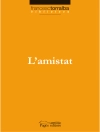ARRESTED DEVELOPMENT AND PHILOSOPHY
Is George Michael’s crush on his cousin unnatural?
Is it immoral for Lindsay to lie about stealing clothes to hide her job?
Is Gob better off living his life in bad faith?
What inferences can we draw from Tobias’s double-entendres?
Are the pictures really of bunkers or balls?
The Bluth family’s faults, foibles, and character flaws are so excruciatingly familiar that we squirm in painful recognition of the outrageous impulses that we all have but would never act on. The Bluths seem utterly unaware of the gaping distance between their behavior and accepted social norms. Lurking behind this craziness are large moral and philosophical issues to be explored. From Plato to Aristotle, from Descartes to Marx, Arrested Development and Philosophy draws from great philosophical minds to shed new light on the show’s key questions and captivating themes, including the nature of self-knowledge and happiness, business ethics and capitalist alienation, social class, the role of error in character development, and much more.
Inhaltsverzeichnis
ACKNOWLEDGMENTS: And Now a Few Words from the New CEOs of
the Bluth Company ix
INTRODUCTION 1
Kristopher Phillips
PART ONE FAMILY FIRST
1 Is the Examined Life a Huge Mistake?: Happiness,
Self-Knowledge, and the Bluths 7
Jason Southworth and Ruth Tallman
2 Kissing Cousins: Incest, Naturalism, and the Yuck Factor
23
Deborah R. Barnbaum
3 Freudian Arrested Development 33
Tim Jung
4 Don’t Know Thyself: Gob and the Wisdom of Bad Faith 46
Daniel P. Malloy
PART TWO A BUSINESS MODEL
5 Dr. Fünke’s 100 Percent Natural Good-Time Alienation
Solution 61
Jeff Ewing
6 Family First: How Not to Run a Business 73
Brett Gaul
7 Bourgeois Bluths: Arrested Development and Class Status
85
Rachel Mc Kinney
PART THREE SOME HUGE MISTAKES
8 What Whitey Isn’t Ready to Hear: Social Identity in
Arrested Development 99
J. Jeremy Wisnewski
9 ‚I Just Blue Myself‘: The Use and Abuse of Language in
Arrested Development 111
M. E. Verrochi
10 To Bias Tobias: Gender Identity, Sexuality, and Arrested
Development 123
Darci Doll
11 I’m Oscar.com: The Problem(s) of Personal Identity in
Arrested Development 136
Kristopher Phillips
PART FOUR THE ONE WHERE THEY DO EPISTEMOLOGY
12 You Can’t Do Magic: Gob Bluth and the Illusionists‘ Craft
151
Michael Cholbi
13 Is Justified True Bluth Belief Knowledge? 162
Brett Coppenger and Kristopher Phillips
14 Bunkers and Balls: Arrested Development,
Underdetermination, and the Theory-ladenness of Observation
172
Michael Da Silva
PART FIVE SOLID AS IRAQ: POLITICS AND ETHICS ARRESTED
15 No Touching! George Sr.’s Brush with Treason 185
Douglas Paletta and Paul Franco
16 ‚I’ve Made a Huge Mistake‘: George Oscar Bluth Jr. and the
Role of Error in Character Development 197
Christopher C. Kirby, Jonathan Hillard, and Mathew
Holmes
17 The Comedy of Contradiction 210
Erin Fay and Willie Young
PARTS IX: AND ON THE EPILOGUE . . .
18 And Now the Story of a Wealthy Family Who Lost Everything:
Arrested Development, Narrative, and How We Find Meaning
227
Tyler Shores
CONTRIBUTORS: Banana Stand Employee Roster 241
INDEX: Banana Stand Inventory 247
Über den Autor
KRISTOPHER G. PHILLIPS is a Ph D candidate (ABD) in the Department of Philosophy at the University of Iowa.
J. JEREMY WISNEWSKI is an associate professor of philosophy at Hartwick College. He is the editor of Family Guy and Philosophy, The Office and Philosophy, and 30 Rock and Philosophy, and coeditor of X-Men and Philosophy and Twilight and Philosophy.
WILLIAM IRWIN is a professor of philosophy at King’s College. He originated the philosophy and popular culture genre of books as coeditor of the bestselling The Simpsons and Philosophy and has overseen recent titles including House and Philosophy, Alice in Wonderland and Philosophy, and Mad Men and Philosophy.
To learn more about the Blackwell Philosophy and Pop Culture series, visit www.andphilosophy.com












